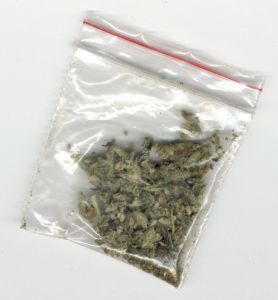Local Governments Lose Funding in Fights against Medical Marijuana in Garden Grove and Elsewhere
Medical marijuana dispensaries in Garden Grove were banned roughly three years ago, but the ban didn’t go as planned. With a number of lawsuits that began stacking up, officials worried that the city would not have the necessary funds available to pay any costs associated with the laws, including attorneys’ fees. One marijuana case paid out roughly $200,000 to the attorneys. Since the flood of these lawsuits, the city stopped pushing its ban. Beginning this past summer, the city required medical marijuana dispensaries to register with the city. Now there are roughly 60 shops in the city. City Manager Matt Fertal says that he thinks the city has more shops per capita than any other city in the state.

“Everybody is just so frustrated with this,” Fertal said.
Our Los Angeles medical marijuana attorneys understand the problems shop owners face when dealing with the government regulations on the medical marijuana industry. State law doesn’t specify how cities and counties should regulate the industry and federal government says it’s still illegal, not matter what. Fertal recognizes that many dispensaries won’t hesitate to sue cities for trying to regulate them. Garden Grove continues to search for a comprehensive regulating system to please everyone.
As the industry continues to grow, smaller cities are finding regulation to be too costly. Many smaller cities aren’t fortunate enough to have in-house legal departments and have to pay attorneys by the hour.
While there are no distinct numbers illustrating how many local governments have been involved in costly litigation over marijuana, many estimate that there have been at least 40. Some believe this number is much higher.
Many cities are undergoing serious budget crunches and simply don’t have the resources to battle these wealthy dispensaries. Medical marijuana activists have joined the fight, too, saying these needless regulations are harming deserving patients who rely on the treatment.
Officials who suppress the industry are going to become victims of litigation, it’s inevitable. There are activists in nearly every community throughout the state who are ready to fight back. These activists say they have the state on their side. Recent polls illustrate that a majority of Californians support medical marijuana.
Medical marijuana was approved for medicinal purposes in California back in 1996. This was passed in Proposition 215. Later in 2009, California’s legislature passed the Medical Marijuana Program Act (Senate Bill 420). The legality of the industry remains in the gray area though with so many different regulations across the state. In the beginning of President Barack Obama’s term, he promised to halt the crackdown on medical marijuana that followed state laws. That promise was short-lived.
“People should be entitled to know what the law is, and the law is not clear enough for people to know what it is,” said Joe Elford, of Americans for Safe Access.
Continue reading
 Cannabis Law Group's Medical Marijuana Legal Blog
Cannabis Law Group's Medical Marijuana Legal Blog












